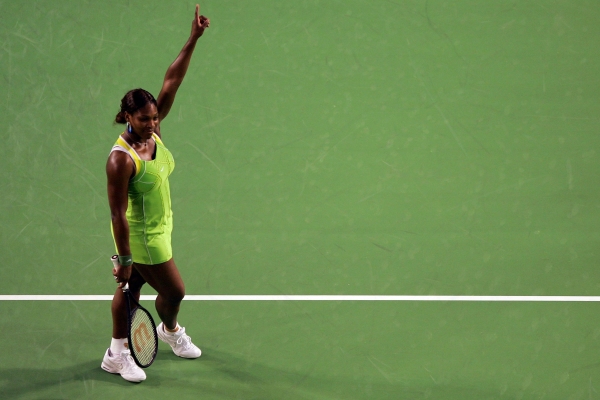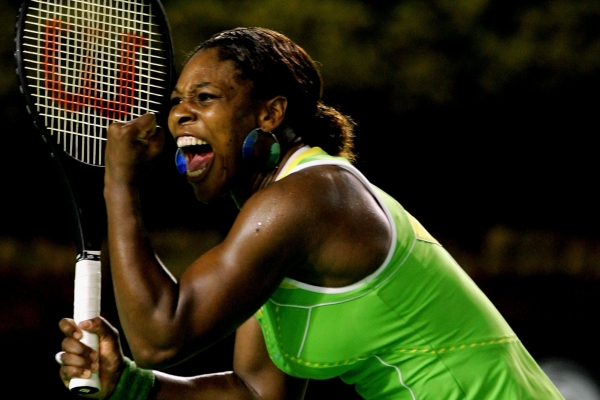Serena Williams’ Australian Open 2007 triumph is arguably the best example of her champion qualities and extraordinary willpower.
During a dramatic fortnight at Melbourne Park, the American proved wrong almost everybody in the tennis world.
Aside from her staunchest fans, few predicted Williams would thrive in early 2007. In fact, many outright said she wouldn't.
Williams came to Melbourne ranked 81st, having played only four tournaments in the past 12 months.
A knee injury marred her 2006 season, sidelining her for six months after the Australian Open. She played just three events – Cincinnati, Los Angeles and the US Open – for the rest of the year, and briefly departed the top 100.
A stuttering start
Williams opened 2007 at the low-tier Hobart International, crashing out in the quarterfinals to Sybille Bammer.
She acknowledged she was both rusty and out of shape coming into the year’s first Grand Slam event.
“I thought, 'Man, this is bad Serena. You can’t even get past the quarterfinals in a Tier IV tournament,'” she wrote of the Bammer loss in her 2009 autobiography Queen of the Court.
“The mean-spirited comments about my fitness and game were rooted in truth. I was a little heavy – maybe twenty pounds heavier than I wanted to be at that point.”
The “mean-spirited comments” Williams referenced appeared in the tennis press, about her weight, as she prepared for AO 2007. “The general consensus was that I was a big fat cow,” she summarised in her autobiography.
Similar themes persisted after Williams dismissed No.27 seed Mara Santangelo in the first round.

“There is always a sense with Williams, who was looking more than a few pounds overweight in a lime green dress which was doing her no favours, that she expects to win matches as if it is her divine right,” wrote one reporter.
Sniped another: “By the look of things, many of (her off-season) workouts involved a remote control and a 50-inch plasma screen.”
Williams tried to block out the commentary and forge on. She beat Anne Kremer in her next match, yet trailed No.5 seed Nadia Petrova 6-1 5-3 in the third round.
At this crucial juncture, she experienced an awakening -- and it completely altered the course of her tournament.
“There was this one point when I let out this unbelievable grunt. It was almost primal. It was just a release, for all that pressure I was feeling from the start of the tournament,” she recounted.
“Everything came together after that. I was still down a set, still two points from losing the match, but I knew it was mine.”

Williams defeated Petrova 1-6 7-5 6-3 in that absorbing affair. And now in the second week of the tournament, she looked increasingly formidable.
She dropped five games in dismissing 11th seed Jelena Jankovic, a player already on her steady march towards the top ranking. She survived a thrilling slugfest against Shahar Peer to reach the semifinals. There, she beat Czech teen phenom Nicole Vaidisova.
Through to her first major final in two years, Williams lined up against top seed Maria Sharapova.
What followed was one of the great Grand Slam final performances in the sport’s history.
In their last meeting, Williams had saved match points to beat the Russian 8-6 in the third set of the AO 2005 semifinals. This time around, Sharapova had no answer to Williams’ brilliant, overwhelming assault.
With incredible focus, intensity and power, Serena crushed her rival 6-1 6-2 in 63 minutes to win her eighth Grand Slam singles trophy.
"It was an awesome win because I had so many critics, so many people talking bad and saying negative things and saying I wasn't fit," she said.
"I felt that I was really fit and could last three sets and two-and-a-half or three hours, no worries. I actually did that throughout the tournament, so you tell me no and I'll show you that I can do it.
"I get the greatest satisfaction just holding up the Grand Slam trophy and proving everyone wrong."